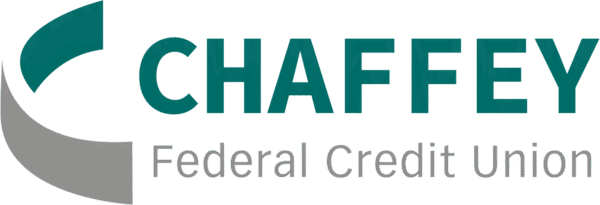
The thought of buying a home can be overwhelming, especially for a first-time homebuyer. Your home is most likely the largest purchase you will make in your lifetime, and we want to help put you in a position where you can enjoy your investment for many years to come. A disciplined savings plan can be good practice for you and your budget not only to reach your savings goal, but also to be prepared with the extra expenses that come along with home ownership. Buying a house before you (or your savings account) can handle it can interrupt your entire plan.
Set a Savings Goal
To make the journey more feasible, know how much you want to save. Having an attainable goal that you can track will help you plan how quickly you can get into your new house. If you know how much you need to save you can also adjust your savings contributions and budget as needed to reach your goal more quickly.
Consider your downpayment, closing costs, and moving expenses when building your savings goal – you’ll need to be able to cover these costs when you first purchase your home. Your downpayment is the upfront cash you put down to buy your house, and the rest of the purchase price is financed. Knowing if you want to put down 3% (the Chaffey FCU minimum requirement), or 20% (which could in result in a more favorable monthly payment and rate) will impact how much you need to save now.
Closing costs are the fees needed to finalize your mortgage, and these are paid by you in addition to the down payment. They cover the additional expenses associated with purchasing your home, such as loan origination (or the approval process for your mortgage), appraisal fees (to confirm the value of the home you’re looking to purchase), property taxes, and any applicable insurances. Together, closing costs typically account for 2-5% of your total home cost, but can still vary based on your specific home-buying situation. If you are looking for a more detailed review of what might be included in your closing costs, or how expensive they might be, connect with our Lending team today.
You can also look to family or your local community for down payment resources. First-time homebuyers often receive down payment funds as a gift from family members; if this is part of your plan, make sure you understand some of the rules and documentation that gifted funds require. Down payment assistance programs through the Federal Home Loan Bank and other local partners may be available, but keep in mind that eligibility requirements can be strict and funding may not always be available when you are in the market. That being said, do your research and know what programs are available to you, because you may be in just the right spot at the right time! And finally, sometimes your realtor can help you negotiate for the seller of the property to pay the closing costs, which can reduce the amount of cash you need to provide out-of-pocket. Of course, being able to cover your own closing costs puts you in a stronger bidding position to purchase the property, so we do not recommend relying on this option as a guarantee.
If you need help determining what you can afford as you build your budget or savings plan, Chaffey FCU offers free Home Lending Calculators to help you determine how much home you can afford or what your mortgage payments might be.
Reduce your debt, Increase your savings
Saving up for a house is no easy feat. With how expensive the current housing market is, many think that saving for a house is an impossible task, but don’t let that discourage you. There’s a lot you can change in your regular routine to help you reach your goal.
Refinancing auto loans, consolidating debt, or committing to a debt repayment plan can go a long way in maximizing the amount of money you are able to put into savings. Plus, minimizing your debt before applying for a mortgage can improve your credit score and decrease your debt-to-income ratio, which can help improve the terms and affordability of your home loan.
When you receive additional funds, such as a work bonus or raise, add them directly into your housing fund for an extra boost. If you find yourself struggling to commit to your monthly savings goal, automating your savings contributions can help take the stress off yourself. Out of sight, out of mind.
Savings Accounts that help you earn more
Once you have started setting funds aside for your home, putting them in an account that earns a higher yield can be an easy way to start earning more on your existing savings.
- Share Certificates are an easy tool to lock in savings to earn a higher rate. Chaffey FCU Share Certificates only require a minimum balance of $1,000 to help you make the most of your savings, even if you’re just starting out. However, if you open your Certificate with a minimum balance of $10,000, you can expect to lock-in an even higher savings rate.
- If you want to earn more than what is offered by a traditional savings account, but don’t like the idea of locking your funds away for the entire term of a Share Certificate, Money Market accounts offer a higher yield with the liquidity of a checking account.
- If you are looking for something with a higher return or more flexibility, speaking with a professional about investment options might help you build your savings strategies in the long-run.
Know what you’re saving for
Understanding your wants and needs in a new home can help you better understand how much you should be saving and budgeting for. The type of house or the neighborhood you want to live in can have a big impact on how much you need to save.
Searching online and touring houses in-person can help you understand the true cost of your dream home. Sometimes, this search might also help you realize that refining your home “wish-list” is a realistic step on your home ownership journey. Ask yourself questions such as:
- How much space will you need in your house?
- Do you want to take on a house that might require home improvement projects?
- Are you willing to commute to work?
- What neighborhoods or school districts do you want to be in?
If you’re getting ready to take the next step in your home-buying journey or are looking for some more expertise as you determine how much you should be saving, the Chaffey FCU Loan Department is ready to assist you through your unique home-buying needs. Contact us today or submit a Real Estate inquiry form to get the conversation started.

 Latest Post
Latest Post 
